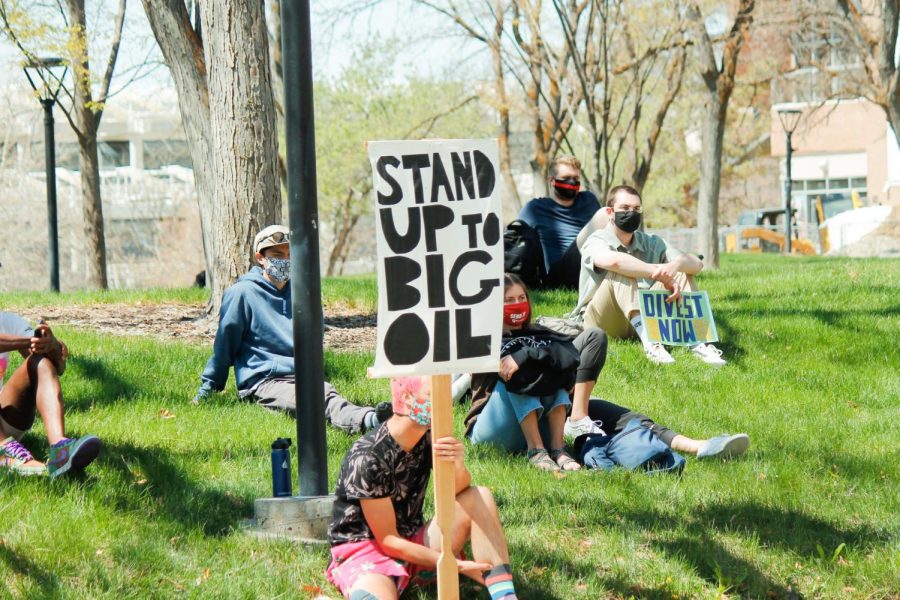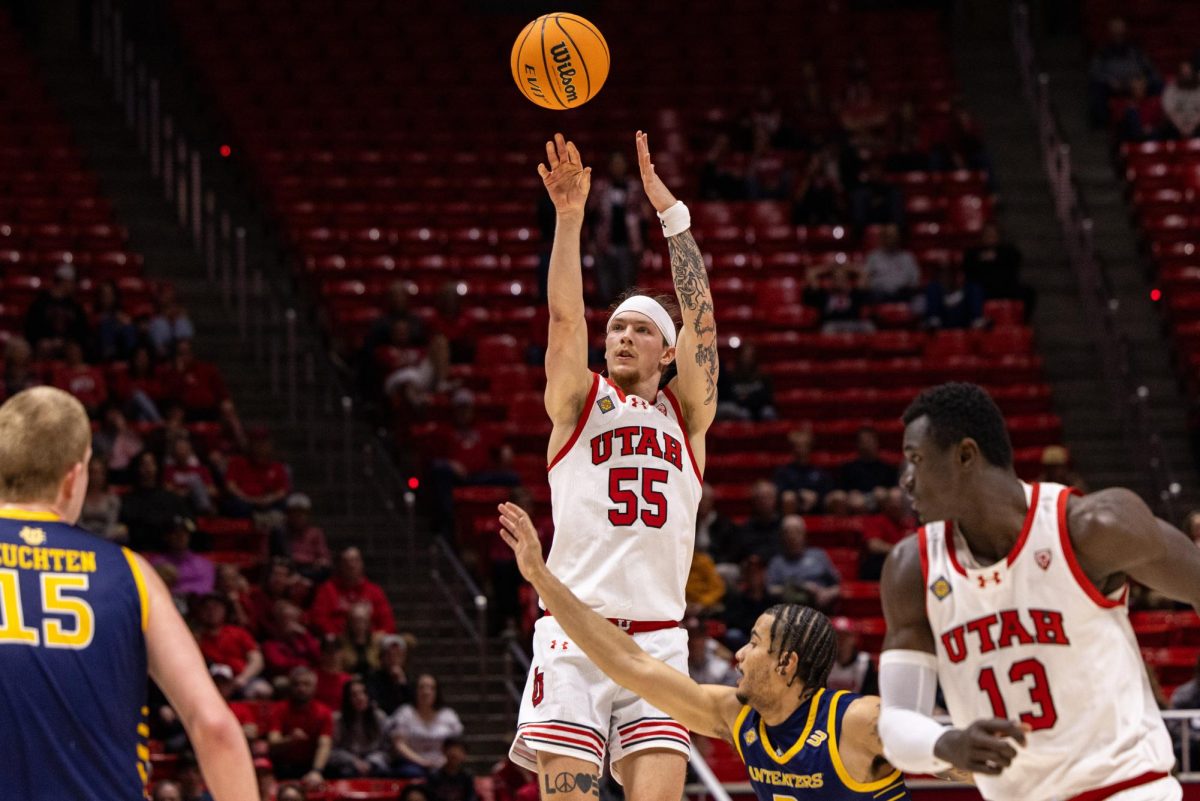After Student Pressure, U Takes New Steps Toward Divestment
People listen to speakers at a climate protest held by Divest U at the Union Plaza on April 22, 2021. (Photo by Natalie Colby | Daily Utah Chronicle)
May 20, 2021
The University of Utah academic senate voted in favor of the divestment recommendations made by the Senate Ad Hoc Committee for Divestment and Strategic Reinvestment Investigation.
70 members were in favor with 22 against and three abstaining in the April 26 meeting. This vote differed from the last vote in 2016, which passed by a margin of 51-50.
Recommendations include the U not making any more public equity investments in Carbon Underground 200, the top 100 coal and top 100 oil and gas publicly-traded reserve holders globally.
Another recommendation is to abstain from private equity investments in upstream or midstream fossil fuel companies as well as reinvest the portion of the endowments and some existing uninvested capital in positive sustainable investments.
According to Taylor Monney, an organizer with Divest U, a student-led movement to divest the U’s endowment funds from the fossil fuel industry, this committee has been researching divestment, examining the economic impacts and considering student and community member input for about a year.
“While these recommendations are not full divestment from fossil fuels, they provide a strong starting point and a socially responsible transformation of the U’s endowment portfolio,” Monney said in a written statement.
Rebecca Hardenbrook, another organizer with Divest U, said the academic senate did not vote for full, immediate divestment as called for by Divest U, but rather a segmented divestment, involving public equity assets and private equity assets.
“I think the main reason is because there are some contracts that the U doesn’t want to pay fees for breaking or leaving early to make that timeline faster than the 10 years,” Hardenbrook said. “That’s something that Divest U will be pushing for, full divestment immediately.”
After the academic senate vote, the board of trustees may vote on whether to approve divestment.
Divest U is hoping the board will vote in their upcoming June meeting, but there is a possibility they will decide to not discuss divestment. This occurred in 2016 when divestment passed the senate by one vote and the board declined to vote on the measure.
Instead, the board said the U should establish a committee to address these issues — a committee that was never formed.
“This year however, with [70] senators voting in favor and 22 opposed, the senate has overwhelmingly favored a socially responsible and environmentally sustainable realignment,” Monney said. “This margin was really exciting and reflects the changes at our school as people are growing more aware of the climate crisis.”
Both Hardenbrook and Monney emphasized the importance of student involvement in getting partial divestment passed.
“The committee held several town halls to gather student input and students from various colleges all urged the committee to propose comprehensive divestment,” Monney said. “These students referenced their concern of the climate crisis and their desire to attend an institution that was taking necessary steps to act sustainably.”
Divest U started a petition signed by over 750 people, most of them students. Multiple senators referenced this petition as evidence of student support for divestment.
“During the senate vote, several committee members spoke about the student feedback, stating that all the students that spoke to the committee wanted full divestment,” Monney said.
Hardenbrook said when making arguments such as full divestment, which threaten power structures, people will say that students are not experts on the topic and should not be speaking on it.
“When that happens, people are naturally going to get nervous, and they’re going to push back and say that you don’t know enough about the issue, that you’re not an expert on divestment, I’ve heard that before,” she said.
According to Hardenbrook, people saying those things are not experts either. She said as students of universities with access to resources on this subject, it is possible to get educated on divestment.
“They probably know less than you and your motivation for the issues,” Hardenbrook said. “Because it comes down to your life and your future and your current experience and the experience of your community moving forward, rather than continuing to put money in your pocket from a dying and murderous industry.”








